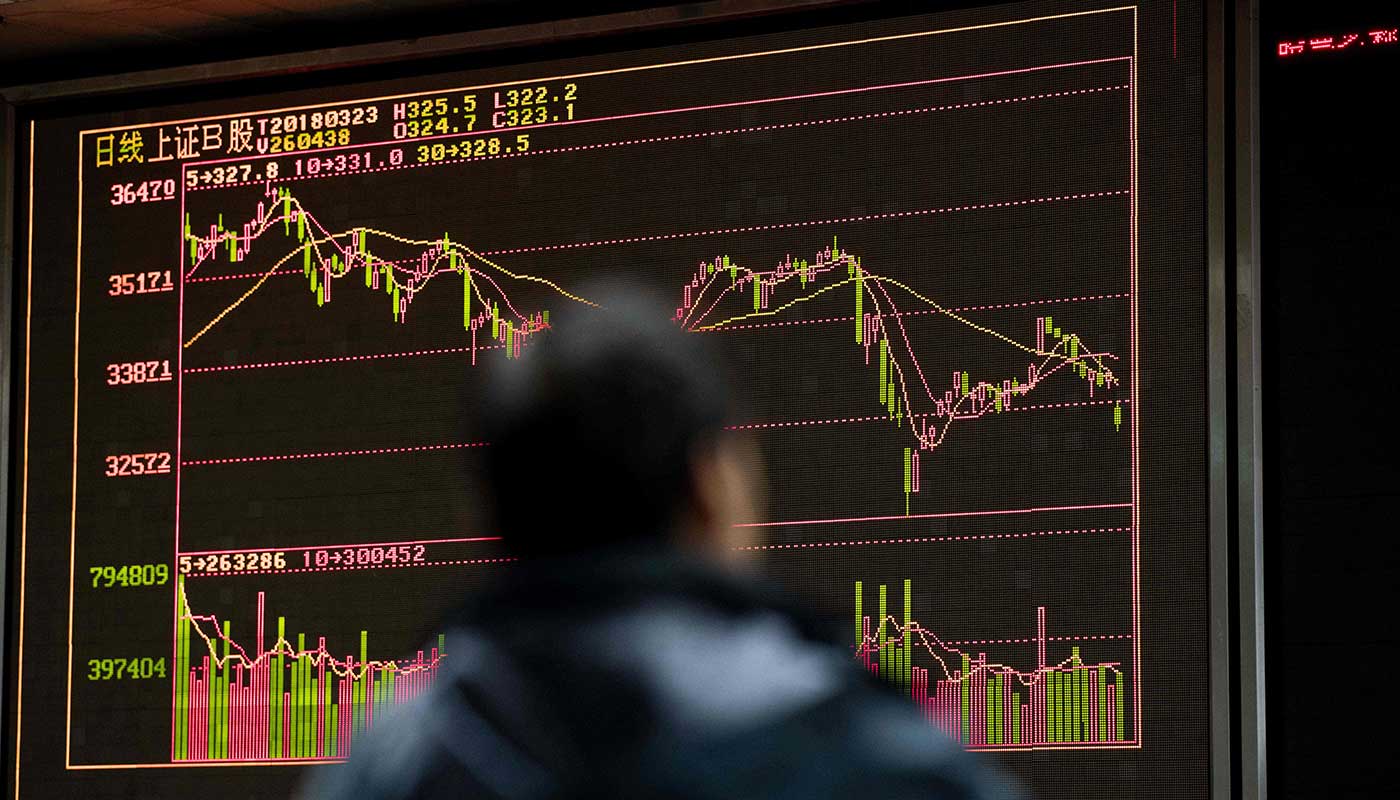What is a currency war and could Trump trigger one?
US President sparks new investor fears after criticising Federal Reserve interest rates as Chinese yuan plummets

A free daily email with the biggest news stories of the day – and the best features from TheWeek.com
You are now subscribed
Your newsletter sign-up was successful
As the US-China trade war continues to undermine global economic confidence, Donald Trump sparked new fears among investors last night by threatening a currency war with Beijing.
The Chinese yuan weakened by nearly 1% against the dollar yesterday and continued its slide today, hitting its lowest level in over a year.
“Analysts said the yuan's latest dip came after China's central bank indicated that it was willing to accept a weaker currency,” CNN reports, as it will help China's huge export industry cope with new US tariffs.
The Week
Escape your echo chamber. Get the facts behind the news, plus analysis from multiple perspectives.

Sign up for The Week's Free Newsletters
From our morning news briefing to a weekly Good News Newsletter, get the best of The Week delivered directly to your inbox.
From our morning news briefing to a weekly Good News Newsletter, get the best of The Week delivered directly to your inbox.
Overnight, the US president launched a “rare attack on America’s central bankers”, The Guardian says, revealing that he “wasn’t happy with their plans to raise US interest rates”.
“Our currency is going up,” Trump said. “I have to tell you, it puts us at a disadvantage.”
What is a currency war?
Currency wars occur when a number of countries seek to depreciate the value of their own currencies in order to stimulate their economies, Investopedia writes.
A free daily email with the biggest news stories of the day – and the best features from TheWeek.com
Although devaluations are not unusual, most do not lead to currency wars - which begin only when several countries all try to push down the value of their currencies at once.
“Instead of making their exports better, they make them cheaper,” The Balance says. “Businesses can export more and the country benefits from stronger economic growth. But currency devaluation also makes imports more expensive. That hurts consumers and adds to inflation.”
The term was coined by Brazil's finance minister, Guido Mantega, who was describing a 2010 stand-off between the US and China.
What is China doing now?
The manipulation of the yuan, considered by many to be undervalued, is a direct response to Trump’s actions on global trade and protectionism, sparking fears that China could “turn a trade war into a currency war”, says Quartz.
The Chinese government has let the yuan weaken by around 4% against the dollar in the past month, among the sharpest one-month drops in value in its history.
That could help China's huge export industry cope with new US tariffs, as it makes Chinese products cheaper for buyers who pay in dollars. That could in turn boost an economy that posted its slowest growth rate in nearly two years - 6.7% - in the second quarter.
It will also make the American products China buys more expensive, reinforcing the effects of China’s tariffs on US-made goods.
However, it is a high-risk strategy. If the yuan falls too quickly, it could prompt money to flood out of China as investors lose confidence and seek to exchange it for assets in dollars and other currencies.
What is Trump’s response?
Chinese actions have prompted Trump to express dissatisfaction with the Fed’s monetary policy. That’s “pretty unusual”, says The Guardian, and “high risk” due to the Fed’s supposed independence from political influence.
However, his administration appears “determined to push down the value of the US dollar”, says Markets.com, in order to help US companies compete abroad, a key plank of Trump’s attempt to make trade “fairer”.
“I am not happy about it,” Trump said. “I don’t like all of this work that we’re putting into the economy and then I see rates going up.”
Nevertheless, reports CNN, analysts say China will be reluctant to weaken the yuan much further “as a weapon” in the trade war, pointing to the “chaos caused in Chinese and global markets by sharp falls in the currency in 2015 and 2016”.
In an interview with CNBC, Trump also threatened to impose tariffs on all of China’s $500bn exports to the US, a dramatic increase on the tariffs placed on $50bn of goods earlier this year.
-
 The 8 best TV shows of the 1960s
The 8 best TV shows of the 1960sThe standout shows of this decade take viewers from outer space to the Wild West
-
 Microdramas are booming
Microdramas are boomingUnder the radar Scroll to watch a whole movie
-
 The Olympic timekeepers keeping the Games on track
The Olympic timekeepers keeping the Games on trackUnder the Radar Swiss watchmaking giant Omega has been at the finish line of every Olympic Games for nearly 100 years
-
 Currencies: Why Trump wants a weak dollar
Currencies: Why Trump wants a weak dollarFeature The dollar has fallen 12% since Trump took office
-
 TikTok: New owners, same risks
TikTok: New owners, same risksFeature What are Larry Ellison’s plans for TikTok US?
-
 Trump wants a weaker dollar, but economists aren’t so sure
Trump wants a weaker dollar, but economists aren’t so sureTalking Points A weaker dollar can make imports more expensive but also boost gold
-
 Leadership: A conspicuous silence from CEOs
Leadership: A conspicuous silence from CEOsFeature CEOs were more vocal during Trump’s first term
-
 Powell: The Fed’s last hope?
Powell: The Fed’s last hope?Feature Federal Reserve Chairman Jerome Powell fights back against President Trump's claims
-
 The end for central bank independence?
The end for central bank independence?The Explainer Trump’s war on the US Federal Reserve comes at a moment of global weakening in central bank authority
-
 Can Trump make single-family homes affordable by banning big investors?
Can Trump make single-family homes affordable by banning big investors?Talking Points Wall Street takes the blame
-
 Phish food for thought: Ben & Jerry’s political turmoil
Phish food for thought: Ben & Jerry’s political turmoilIn the Spotlight War of words over brand activism threatens to ‘overshadow’ the big ice cream deal